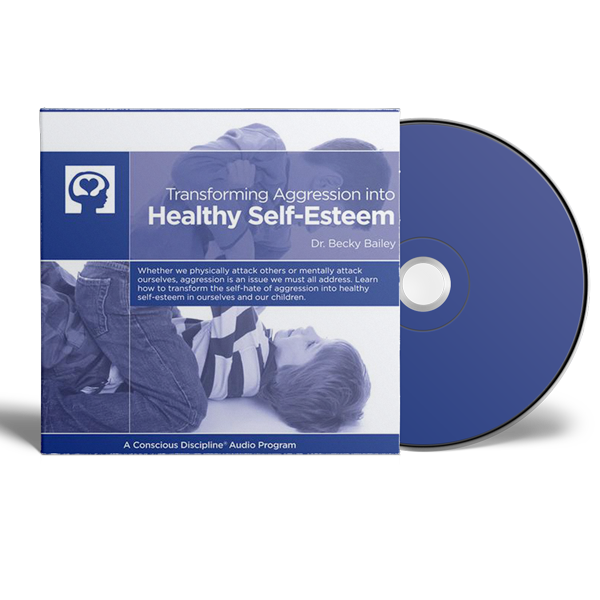
Transforming Aggression into Healthy Self-Esteem – Part 1
Transforming Aggression into Healthy Self-Esteem – Part 1
- View all
- Audio Series
What beliefs do you currently about children who act in hurtful ways? How do you currently respond to children who behave aggressively towards you or others?
Every aggressive act stems from a perception of excessive pain. Helping children transform aggressive behaviors into helpful ones requires we see the misbehavior as a call for help. Changing our beliefs about aggression and children who act in hurtful ways are key in helping children learn new skills. Building relationships with hurting children is essential for their learning to be cooperative.
Join Dr. Becky Bailey for part 1 of this two part series as you learn to transform aggression into healthy self-esteem in yourself and your children.
Total Runtime
- 56 minutes 50 seconds
Time Stamps
- 1:45 Two reactions to every aggressive encounter
- 6:20 To effectively manage aggressive children you must unhook yourself from them
- 7:22 How to create aggressive children
- 14:11 Aggression stems from perception of excessive pain
- 17:20 Seven beliefs that transform aggression
- 17:56 Belief 1 - No one can make you angry without your permission
- 25:12 Belief 2 - The motivation to behave comes from being in relationship
- 26:56 “Let’s do lunch”
- 32:29 Belief 3 - Children are either extending love or calling for love
- 33:58 Belief 4 - Every aggressive act is a call for love
- 39:22 Belief 5 – There are no good children
- Belief 6 – Children can meet the needs of other children only when their needs have been met
- 47:40 Belief 7 – All aggression stems from the perceived experience of excessive pain
- 51:28 Three types of aggression
- 52:46 Victim first rule
- 55:45 Accidental aggression
Key Take-a-ways
- Adults must first “unhook” themselves from children before responding to aggressive acts.
- The willingness to be cooperative happens in the context of a relationship.
- See children’s misbehavior as a call for love.
- If a child does not have the skill to do what is being asked, consequences will not work.
- When aggressive acts occur, go to the victim first.
Product Mentions
- There’s Got to be a Better Way: Discipline that works!
- The NEW Conscious Discipline Book – Expanded & Updated
- Shubert Picture Rule Cards
- Routine and Responsibility Cards
Helpful Next Steps
- Audio Series
- Online course with Dr. Becky Bailey – Conscious Discipline: Building Resilient Schools and Homes
 2018 Elevate SEL video sessions
2018 Elevate SEL video sessions 

